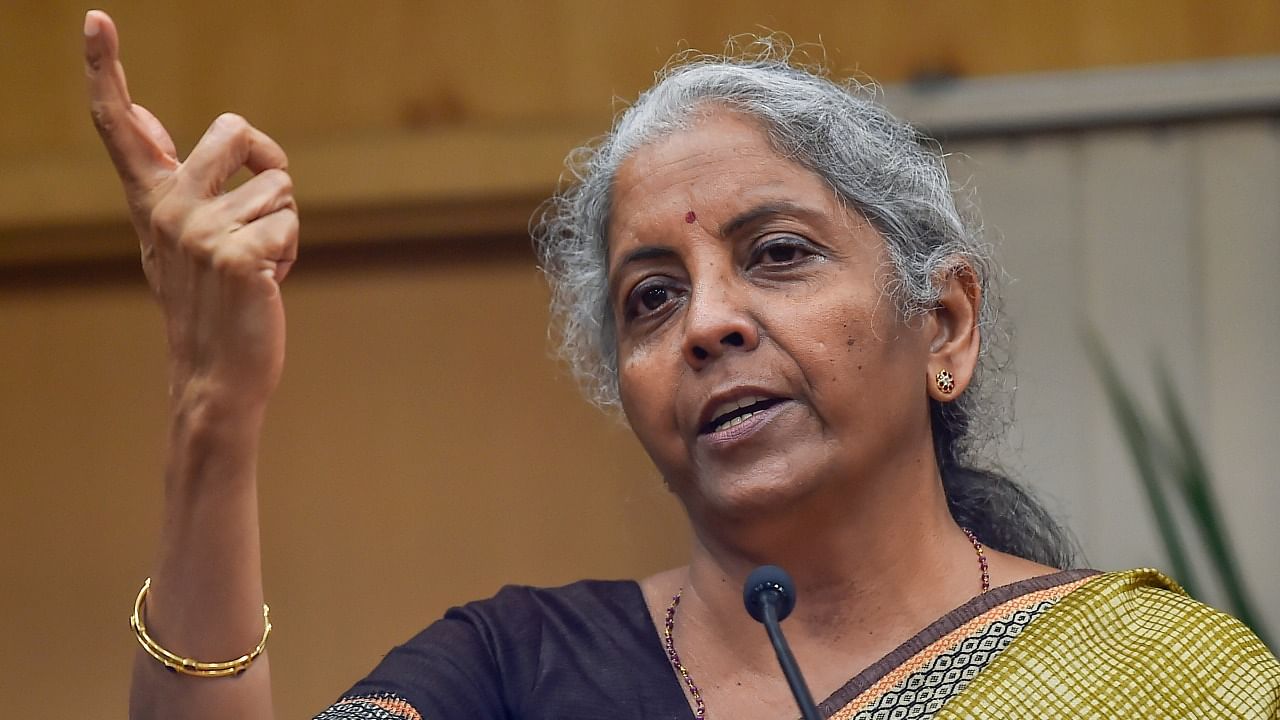
India and the UK on Thursday agreed on a $1.2 billion investment in green projects and renewable energy to boost India’s green growth ambitions at the 11th India-UK Economic and Financial Dialogue between Finance Minister Nirmala Sitharaman and her British counterpart Rishi Sunak, driving forward the bilateral agenda of an Enhanced Trade Partnership.
Sitharaman and Sunak, who met virtually for the annual summit, signed off the $1.2-billion package of public and private investment in green projects and renewable energy in India.
This includes a $1 billion investment from CDC, the UK’s development finance institution in green projects in India, joint investments by both governments to support companies working on innovative green tech solutions, and a new $200 million private and multilateral investment into the joint Green Growth Equity Fund which invests in Indian renewable energy.
A new Climate Finance Leadership Initiative (CFLI) India partnership has also been agreed to mobilise private capital into sustainable infrastructure in India, including clean energy like wind and solar power and other green technologies.
“The UK and India already have strong ties, and today we’ve made important new agreements to boost our relationship and deliver for both our countries,” said Sunak.
“Supporting India’s green growth is a shared priority so I’m pleased that we’ve announced a $1.2 billion investment package, and launched the new CFLI India partnership, to boost investment in sustainable projects in India as the UK gears up to host COP26," he said.
"With trade negotiations also coming up, our agreement to be ambitious when considering services will create new opportunities in both markets, supporting jobs and investment in the UK and India,” he said.
At the Economic and Financial Dialogue (EFD), both ministers agreed to be ambitious when considering services in the upcoming UK-India trade negotiations and strengthen the financial market collaboration efforts already underway to finance growth.
The UK also welcomed India’s recent decision to lift the Foreign Direct Investment (FDI) cap in the insurance sector from 49 per cent to 74 per cent which will help British firms to take greater ownership of their operations in India.
According to UK government statistics, UK-India bilateral trade stands at around 18 billion Pounds in 2020 and supports nearly half-a-million jobs in each other’s economies.
The countries have set a goal to double trade by 2030, including through negotiating a Free Trade Agreement (FTA) following an Enhanced Trade Partnership (ETP) agreed between Prime Minister Narendra Modi and his UK counterpart Boris Johnson earlier this year.
The joint statement signed at the end of the EFD covers a broad range of areas, including the financial services and opening up new opportunities for UK financial firms and helping more Indian companies access finance in the City of London.
According to official figures, over the last five years, Indian firms have raised GBP 13.41 billion in Masala, dollar and green bonds listed on the London Stock Exchange (LSE), with the LSE dubbed the “largest global centre for Masala Bonds”.
The two governments also welcomed the launch of the India-UK Global Innovation Partnership under the Trilateral Development Cooperation Framework, wherein India and UK will co-finance equally a fund over 14 years to support the transfer and scale up of climate-smart inclusive innovations from India to third countries.
Progress of the UK-India strategic partnership on GIFT City (Gujarat International Finance Tec-City), India’s first International Financial Services Centre (IFSC), to promote links between GIFT City and the UK financial services ecosystem was also highlighted in the EFD joint statement.
“Both countries welcome that UK banks are the first international banks to set up in GIFT City, underlining the strength of UK-India cooperation. Both sides agree to explore facilitating the dual listing of green, social and sustainable bonds on the London Stock Exchange (LSE) and IFSC exchanges, to enable firms to raise foreign capital,” the statement notes.